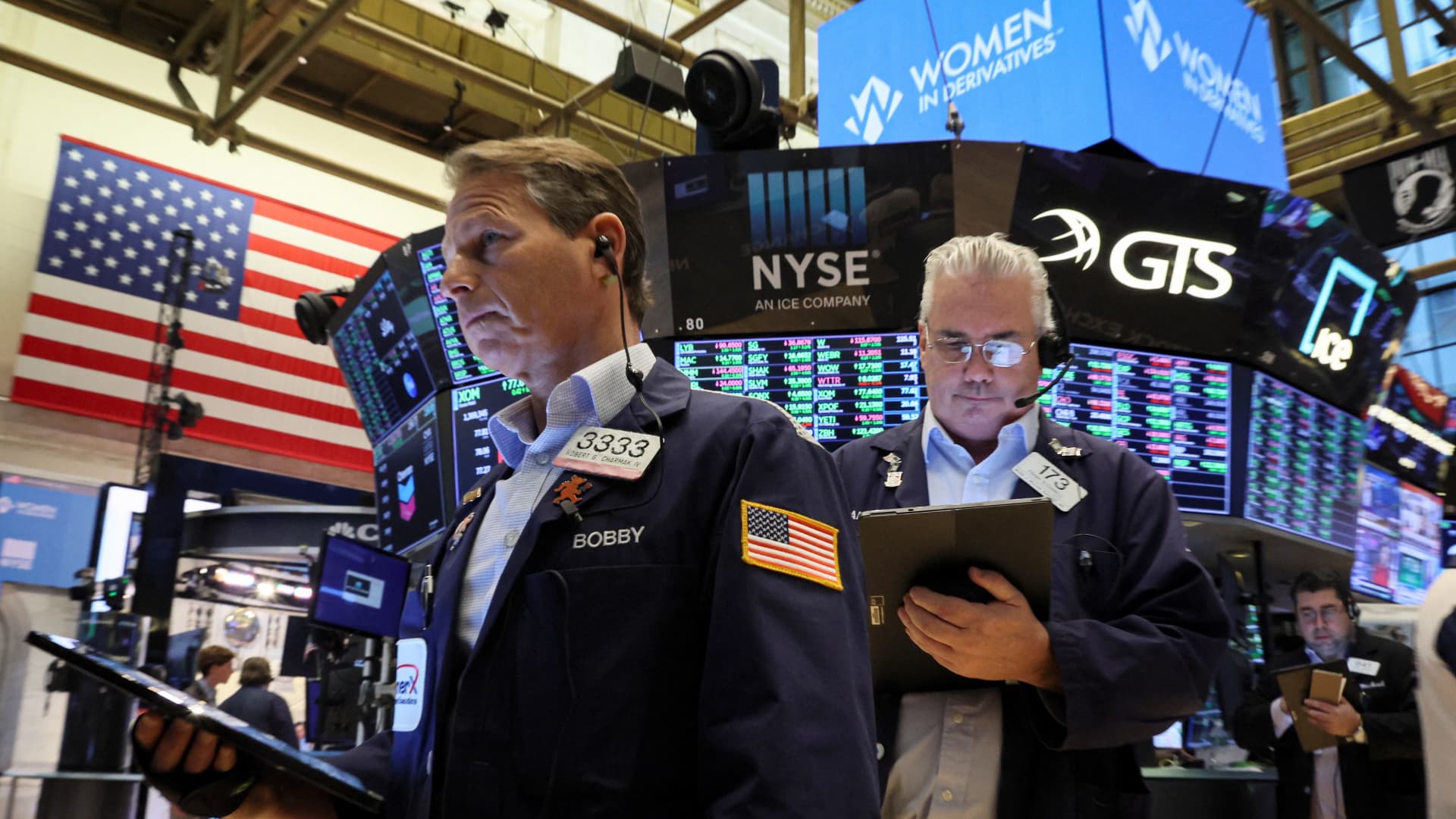
The market may be in the early innings of a dramatic decline.
Despite Monday’s tech comeback, money manager Dan Suzuki of Richard Bernstein Advisors warns the group is in a “bubble.”
“Go back and look at the history of bubbles. They don’t softly correct and then are off to the races six months later. You typically see a major correction, you know, 50% or more. And, typically it comes with an overshoot,” the firm’s deputy chief investment officer told CNBC’s “Fast Money.”
Suzuki suggests the stakes are high this week with the Federal Reserve set for a two-day policy meeting. Wall Street consensus expects a half-point hike on Wednesday. The biggest wildcard, according to Suzuki, will be guidance.
“There’s probably a lot more downside to go,” said Suzuki, who’s also a former Bank of America-Merrill Lynch market strategist. “Information technology, communication services and consumer discretionary… alone make up about half of the market cap of the S&P 500.”
Suzuki and his firm made the tech bubble call late last June. The forecast is built on the notion a rising interest environment will hurt growth stocks, particularly technology.
Meanwhile, the Nasdaq is coming off its worst month since 2008. The tech-heavy index jumped 1.6% on Monday. But, it’s still off almost 23% from its all-time high, hit on Nov. 22, 2021.
Yet, Suzuki is staying invested in stocks.
To weather a potential crash, Suzuki is taking a barbell approach. On one end, he likes stocks which typically benefit in an inflationary environment, particularly energy, materials and financials. He lists defensive stocks, which include consumer staples, on the other side.
“Most of the inflation beneficiaries tend to come with a lot of cyclicality,” he said. “The further that the economy continues to slow, you probably want to switch the concentration of that barbell away from the inflation beneficiaries and toward more of the defensive names.”
Suzuki acknowledges investors are paying a premium for safer trades. However, he believes it’s worth it.
“If you go back and look at all of the bear markets over the last 20 to 30 years, look at the starting point valuations for defensive stocks. They are never cheap going into a bear market,” Suzuki said. “They are expensive relative to the rest of the market where earnings estimates are probably too high.”
Disclaimer







